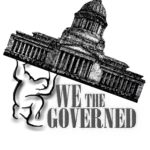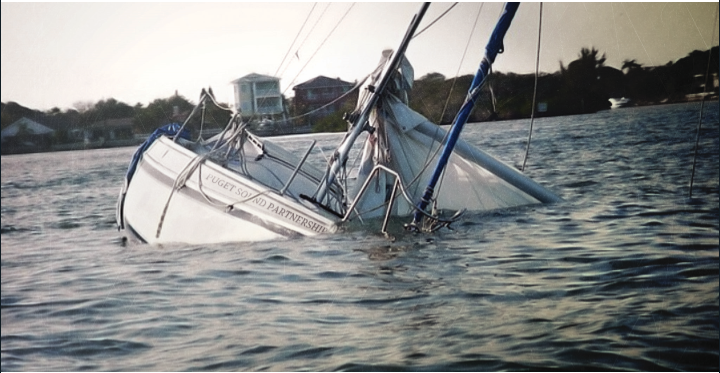
(This article was originally published on the Freedom Foundation blog on January 10, 2014, written by Glen Morgan, while he was the Property Rights Director at the Freedom Foundation. The original article posting was deleted by the Freedom Foundation in 2017. It has been reposted here exactly as it was originally written. Some links no longer work and some original images are no longer included in the article)
PSP case for abolishing this agency – 2014
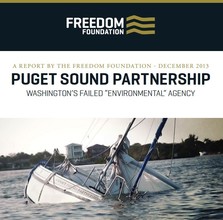
The Freedom Foundation has produced a report, linked here, that presents a compelling case for abolishing the Puget Sound Partnership — a corrupt, incompetent, do-nothing-for-the-environment agency that serves as a classic example of a complete and total waste of taxpayer resources.
Unfortunately, it’s not very difficult to find evidence of incompetence and waste in most government agencies. But that alone isn’t why we are calling for abolishing this agency.
By Washington state standards, this is a small operation, consuming less than $20 million in state taxpayer funds this biennium. There are bigger financial problems in Washington state government.
We are calling for abolishing the Puget Sound Partnership because if ever an agency deserves to be dissolved, this is it. If our elected officials are unable to redirect our limited tax dollars away from such an obvious waste of resources, then we should question whether it is possible to do it under any circumstance.
We are calling for abolishing this agency because a message needs to be sent to all government agencies in our state that there are consequences for corruption and total incompetence at some point.
In addition to the attached report, it is worth reviewing some of the colorful history behind this agency. This is largely a tale of nepotism, incompetence and patronage, and is hardly unique in government history. What might be unique is how all this drama has produced a state agency that has accomplished so little for so much money squandered.
It is helpful to know this history when reading our report and considering our suggestions.
Founded in 2007 by then-Gov. Christine Gregoire, the Puget Sound Partnership was created to be a “community effort of citizens, governments, tribes, scientists and businesses working together to restore and protect Puget Sound.”
It was an opportune time for the Washington State Legislature to create a new agency dedicated to “restoring” the Puget Sound. State revenues were up and the prospect of a financial crisis did not appear likely.
The old agency dedicated to cleaning up the Sound, the “Puget Sound Action Team,” was looking increasingly more powerless to do anything productive and was set to be abolished by the state Legislature. Most auspiciously, Congressman Norm Dicks (D-6th) was serving as a ranking member of the U.S. House Appropriations Committee and was in-line to become its head in a Democrat-controlled Congress, putting the representative from Bremerton into one of the most powerful positions in the nation to funnel federal dollars.
While sitting on the committee in January 2007, Dicks secured a $50 million earmark for Puget Sound cleanup efforts. At the same time, David Dicks — Rep. Dicks’ son — applied to become executive director of the newly created Puget Sound Partnership, a position that paid $125,000 a year.
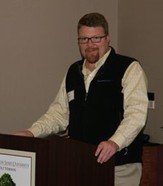
David Dicks, a 36-year-old attorney at a Seattle law firm with no administrative experience, seemed an unlikely choice to head up the new agency whose mission was to lead a “science-based, results-driven, publically embraced partnership.” Yet the junior Dicks was eager to pursue a career in the public eye like his father. During public hearings, he touted his ability to secure federal funds and was repeatedly praised for doing so.
Despite concerns about his actual administrative ability, the Partnership’s Leadership Council, headed by President Richard Nixon’s one-time EPA-chief — and vocal Norm Dicks’ supporter — Bill Ruckelshaus, sent David’s resume to the governor for approval.
In August 2007, Gov. Christine Gregoire appointed David Dicks executive director of the Partnership. After his son’s appointment, Norm Dicks authored a bill that doubled the amount of federal spending on Puget Sound restoration projects.
The elder Dicks also bragged about his role in funneling more money towards his son’s agency, “[before I was head of the committee] Puget Sound was receiving $500,000 from the EPA,” he said. “Since then, we’ve put in $93 million for Puget Sound cleanup in the federal legislation.”
In addition to increasing the sheer amount of money his son’s agency receives, Norm Dicks also sought to increase the political clout of the Partnership. Bills passed by Dicks’ committee would also have clarified that “the Partnership is the sort of entity in Washington state charged with cleaning up Puget Sound,” according to his son David.

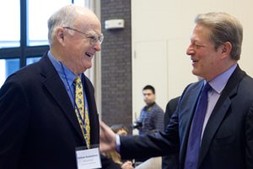
The father’s funneling of federal dollars to his son’s agency and the political appointment was obvious enough to generate interest by traditional media. National newspaper outlets like the Washington Post, and several Washington politicians sounded off on what clearly seemed to be a case of high-profile nepotism in government.
Ruckelshaus, still head of the steering Leadership Council, defended both his decision to hire David Dicks and his congressman father’s steering of federal dollars to the Partnership in a series of radio interviews and a letter to the editor. Ruckelshaus cited Dicks’ “long-time commitment to Puget Sound cleanup efforts and David’s qualifications as director.
Yet Ruckelshaus was certainly not in any position to defend them: Bill Ruckelshaus and his daughter Mary also worked together. When picking the top 15 finalists for the Partnership’s nine-slot Science Council, the Washington State Academy of Sciences rejected Mary Ruckelshaus’ application, yet three months later, David Dicks signed her up to be the Partnership’s chief scientist.
Apparently, Mary Ruckelshaus was not qualified for the less-important Science Council position but was “well-suited” to be senior chief-scientist.
The Partnership’s director of government affairs, John Dohrmann, said of Mary Ruckelshaus and nepotism at PSP: “…it has always been humorous when she’s been in a position to testify or make a presentation in front of a board that her father is chairing.”
Clearly, the two most politically powerful families involved, Dicks and Ruckelshaus, had managed to ensconce themselves with good positions at the agency, despite their lack of qualifications and familial conflict of interest. Nepotism was only the first of many missteps at the agency, one that led directly to many more mistakes.

Fears about David Dicks’ incompetence as executive director of the Partnership quickly proved to be well-founded. Under his watch, the Partnership violated multiple state laws and ethical guidelines.
According to a two-year long probe of the agency, the state Auditor’s Office found that the Partnership repeatedly circumvented state contracting laws, exceeded its purchasing authority and made unallowable purchases with public funds.
The audit report alleged that the Partnership: “…filed a contract with the Office of Financial Management (OFM) for $19,999, one dollar below the $20,000 threshold for advertising or conducting a competitive procurement. We found no cost detail to show how the Partnership determined this amount.”
Then-state Auditor Brian Sonntag said of the contract amount in a Washington Post interview, “This contract was originally $19,999. Now come on — that shows intent.”
Sonntag continued, “That tells me they were looking for a way to direct that contract without opening it to competition.”
Even more revealing, the Partnership gave the contract to the law firm K&L Gates, one of Norm Dicks’ largest congressional campaign contributors. The contract eventually superseded the original contract, paying $51,498 in total, more than twice the original agreed amount.
No surprise, the contract was with Gerry Johnson, a personal friend and former co-worker of David Dicks. Even the contract itself — for setting up a nonprofit foundation into which he could channel taxpayer funds (which would have been immune from public audits) — was a violation of state law that requires all agencies to use the state Attorney General’s Office for all legal business.
While the Partnership’s illegal contract with K&L Gates was the most expensive violation of state law, it was far from the most inept.
Under Dicks’ directorship, the Partnership spent at least $120,000 on IT goods, exceeded their original budget for IT investments for the 2007-2009 biennium, and used to it purchase Apple Macintosh computers — which were not compatible with statewide information systems and applications for financial reporting, payroll, or travel according to the Auditor’s report.
Wasteful spending was commonplace at the Partnership, including gems like:
- · $6,853 for 120 monogrammed fleece vests;
- · $5,044 for 30 monogrammed jackets;
- · $3,650 for 5,000 tubes of lip balm;
- · $687 for 20 personalized mahogany gift boxes containing sparkling apple cider for state officials; and,
- · $2,474 in catering for a private reception – which state agencies are prohibited from providing according to state law.
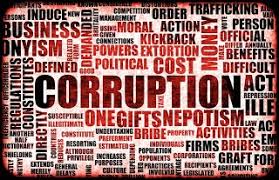
The OFM was also able to stop yet another attempt by the Partnership to break state law — canceling an invoice for $4,900 worth of alcohol for a February event they held at the Convention and Trade Center.
The report also criticized the $10,000 purchase of a “membership” to the Cascade Land Conservancy – which, according to the auditor “the Partnership could not show the public received value commensurate with the amount of funding provided for the membership.”
Why would the agency spend the money in the first place? David’s brother, Ryan Dicks, was actually vice president of transactions and also served in a paid consulting role at the Conservancy at the time.
A series of high-profile investigations by John Ryan of local radio station KUOW highlighted further unethical activity at the Partnership.
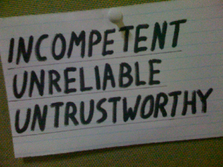
The KUOW report revealed that it was not just K&L Gates and the Cascade Land Conservancy that had benefited from political connections with the Dicks’ family. Steve McBee and Tom Luce, a lobbyist and a consultant, respectively, who used to work for Norm Dicks, were able to secure contracts with the Puget Sound Partnership through David Dicks.
The relationship paid off big time, as McBee’s firm got nearly $400,000 for consulting work; Tom Luce was able to secure over $1 million from PSP for consulting work from “Enviro Issues,” a firm for which he was subcontracting.
KUOW also reported that David Dicks was one of only a handful of directors with his own state-assigned vehicle. Dicks said that he did not commute to work with the car, which would be a violation of state law. And technically, he doesn’t — the car’s official station is actually in front of his Seattle home.
KUOW also reported that Dicks handed out most of the jobs on the management staff without advertising for them, hiring them on at salaries that paid $20,000 more a year on average than similar jobs at other natural resource agencies like Deparemend of Natural Resources or Department of Ecology.
According to an anonymous whistleblower at the agency, David Dicks also used his position to have his long-time friend, Jon Bridgman, taken on as graphic designer at the Partnership. Dicks would later have him design a poster for King County commissioner candidate Dow Constantine, without disclosing the in-kind donation to the Public Disclosure Commission.
Constantine himself had been appointed to the PSP’s ecosystem coordination board by Dicks only five months prior.
An investigation was ordered, but after state investigators prematurely tipped off the parties concerned, the probe was closed.
Dicks proceeded to have the tipster fired, an action in violation of state whistleblower-protection laws.Dicks then claimed not to have known that the worker he fired was the whistleblower, yet record requests of employee performance reviews turned up no previous complaints about her job performance, and her supervisor wrote a glowing letter of recommendation for her after she was fired.
Dicks had to shell out $40,000 in order to get her to sign an agreement agreeing not to sue the agency for firing her, according to an agreement obtained by journalists at radio station KUOW.
Record requests performed by the Freedom Foundation determined there was yet another anonymous whistleblower, likely from inside the agency. This whistleblower told state investigators that PSP had “back-dated” the hiring documents of a new employee, Christopher Townsend, effectively paying him three months before his actual starting date.
Not coincidentally, Townsend was another personal friend hired by David Dicks after he was appointed by the governor. Despite this incredible snafu, Townsend was able to remain at the Partnership and collect a nearly six-figure salary for another two years.
It is not clear at this time that state investigators have done anything about this complaint. Time and time again, the Puget Sound Partnership has been unwilling to follow the basic rules that govern how state agencies should spend taxpayer funds.
Even the Environmental Protection Agency (not known for great financial controls itself) found “a near total lack of certification” for PSP contracts and forced PSP to return $125,000 in federal grant funding already given to PSP.
The Puget Sound Partnership did not appeal or dispute the findings and returned the funding in 2011 (although the Washington State Legislature increased funding to PSP the next year anyway).
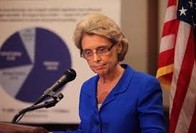
In the face of David Dicks’ incompetence as executive director of the Partnership, Gregoire’s demeanor towards him had changed considerably. Gregoire grilled Dicks on the lack of accountability at an otherwise friendly annual Public Accountability Forum for the directors of all the natural resource departments in October 2010.
Gregoire interrupted Dicks in mid-speech to note, “These slides are too general for me. I knew the story. I want data. I want to be able to see that we are accomplishing what we set out to do. … I need to be able to show to the legislature, candidly, that we are doing our job.
“We have to have measures, goals,” Gregoire said, “and we don’t have that. We have to have (them) for the Puget Sound Partnership itself.”
The governor added, “The next time we come here, I’ve got to be able to … hold the Puget Sound Partnership accountable. Where’s the part where the Puget Sound Partnership can say …’Here’s our job, and here’s how we’re doing our job?’”
In 2011, Gregoire interrogated Dicks over one of his most touted abilities as director. “David, where is the federal legislation that would allow us to have a continuing funding rather than having to ask the question every year?” she asked.
Unfortunately for the Dicks’ political dynasty, the congressional dynamic shifted dramatically in Washington, D.C., after the 2010 mid-terms elections. The Democrats’ historic loss at the polls wiped out Norm Dicks’ chance at becoming chairman of the House Appropriations Committee, which had seemed assured.
In the ensuing session of the 111th Congress, the “Puget Sound Recovery Act,”presented by Sen. Maria Cantwell and Sen. Patty Murray on Norm Dicks’ behalf, failed in committee.
Six days after the 2010 elections, David Dicks quietly resigned as executive director at the Partnership. Inside sources indicated this happened at Gregoire’s behind-the-scenes insistence. The nepotism, cronyism and waste that had plagued Dicks’ directorship were a point of embarrassment for the governor.
Seemingly, David’s only useful quality was his ability to secure additional federal funds for his agency from his father. But with the new political makeup of the 112th Congress, earmarks like this were not likely.
Unfortunately, Dicks did not totally abandon government work. He was given a three-day-a-week, $75,000-a-year job, ironically, teaching students how to manage “strategic partnerships” at a newly created post at the University of Washington.
Despite Dicks’ disappearance from power, the problem of politics at the Partnership does not seem to have disappeared. Before securing another executive director, PSP has seen three interim directors — Gerry O’Keefe, Tony Wright, and Marc Daily. In the meantime, the chairman of the steering Leadership Committee, Bill Ruckelshaus, sent in his resignation to Gregoire.
Ruckelshaus’ replacement, Martha Kongsgaarrd, also happened to be one of our state’s largest campaign donors, shelling out more than $250,000 to various Democrat candidates and causes since 2000.
She has bestowed thousands of dollars to the campaigns of various powerful politicians in Washington state, including Inslee, Norm Dicks, Murray and Cantwell. Inslee is overseeing one of his largest campaign donors at the Partnership.
With Kongsgaarrd at the helm of the Leadership Committee, it seems like the Partnership has received a fresh dose of politics, moving it further in the wrong direction by pursuing political patronage at an agency that is supposed to be guided by hard science.
It is time to end the silly drama of the Puget Sound Partnership. The Legislature needs to stop funding this embarrassment. There are far more worthy recipients of tax dollars, and there can be no claim to fiscal responsibility in Olympia as long as this agency still exists.
Why Should Washington State Taxpayers keep funding this?

http://www.leg.wa.gov/JLARC/AuditAndStudyReports/2011/Documents/PugetSoundPartnershipPreliminary.pdf
